Search Results
Showing results 1 to 20 of 77

Body Parts
Source Institutions
In this online game, learners test their knowledge of human anatomy.

Screen Time
Source Institutions
This game asks you a series of questions about how much time you spend in front of a screen, not being active.
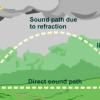
The Rumblin' Road: Determining distance to a Thunderstorm
Source Institutions
In this activity, learners discover how to determine the distance to a lightning strike or nearby thunderstorm.
Rate It: Working With Zero and Negative Numbers
Source Institutions
In this activity, learners will rate the day, a book, or something else on a scale from -2 to 2. This activity works well for groups of all ages.

Physics in a Glass: Reversing Arrows
Source Institutions
In this simple activity, learners investigate refraction by placing a picture of an arrow behind a glass of water.

Setting the Scene
Source Institutions
In this activity (on page 2), pairs of learners create an imaginary crime scene. One person leaves the room while the other person moves a few things around.
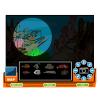
Underwater ROV
Source Institutions
In this online Flash game, learners will explore a coral reef using an underwater remotely operated vehicle (ROV).

Physics Over the Sink: Water Glass Magic
Source Institutions
In this simple demonstration, learners investigate the properties of air pressure. Learners place an index card on top of a glass full of water, then invert the glass.

Bronx Cheer Bulb
Source Institutions
In this activity, learners observe what happens when they give a light source like a neon glow lamp a "Bronx Cheer." The lights appear to wiggle back and forth and flicker when learners blow air throu

False Memories
Source Institutions
Use this activity (10th on the page) to help learners explore memory and how sometimes your brain makes up its own memories. Learners will read and try to remember the words in list #1.

Metamorphosis Matching
Source Institutions
This is an activity where learners will compare the different metamorphosis stages of amphibians.
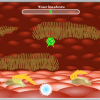
Virus Lander
Source Institutions
Can you avoid the body's immune system and make someone sick? Play this online game in which you go inside a human body to explore how viruses attack cells in the body.
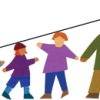
Line Up: Using Math To Stand In Line
Source Institutions
Put math of measurement into lining up — and make waiting in line fun. Choose a size characteristic that learners can physically compare, such as foot length or hair length.
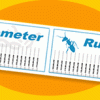
Measure Yourself in Nanometers
Source Institutions
In this activity, learners will be able to measure themselves in nanometers. A nanometer is a billionth of a meter, a unit of measurement used in nanotechnology.
Become a Master of Inertia
Source Institutions
In this activity, learners explore inertia as they attempt to whip a strip of paper out from under two coins dangling on the rim of a water glass.

Stethoscope
Source Institutions
Make a copy of the first stethoscope with only a cardboard tube! René Laennec invented the first stethoscope in 1819 using an actual paper tube!
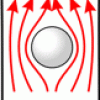
Updrafts in Action
Source Institutions
In this weather activity/demonstration, learners watch as a ping pong ball is suspended in a stream of air supplied by a hair dryer.
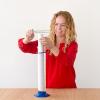
Organ Pipe: Get Bach to the fundamentals
Source Institutions
If you got a big graduated or clear cylinder, water, a pipe, and a tuning fork, you've got a sound learning opportunity! Learn about resonance with this Exploratorium Science Snack.
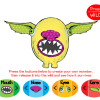
Monster Evolution
Source Institutions
In this online activity, learners create monsters and see how they survived when released into the wild.
Why Are Two Eyes Better Than One?
Source Institutions
In this activity, learners explore how their depth perception would be affected if they only had one eye. Learners work in pairs and attempt to drop a penny in a cup with one eye covered.
